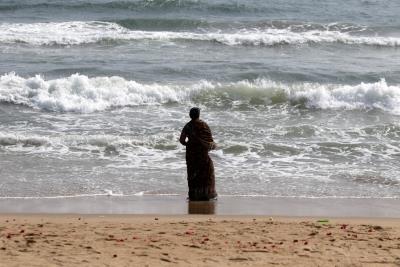
TN Relaxes Coastal Aquifer Zone Rules To Allow 'White Industries'
The change, announced through a recent Government Order issued by the Housing and Urban Development Department, marks a significant shift in land-use policy for one of the city's most ecologically critical regions.
White industries are classified as those with negligible or no adverse impact on the environment.
Earlier regulations had permitted only limited, non-high-rise developments such as small residential buildings, consulting offices, petty shops, schools, hostels, and cottage industries employing up to eight workers using machinery of less than five horsepower.
The revised norms now expand the permissible scope to include low-pollution industries such as bicycle assembly, bio-fertiliser and bio-pesticide units without inorganic chemicals, cotton and woollen hosiery manufacturing, light engineering and fabrication workshops, leather cutting and stitching units, vehicle scrap collection centres, finished leather goods manufacturing, and used cooking oil collection facilities.
According to official data, there are 609 categories of industries classified as“white”.
The government has presented the move as part of its industrial facilitation agenda aimed at promoting environmentally compliant enterprises in suitable zones. However, experts have cautioned that such expansion in fragile aquifer areas could threaten Chennai's groundwater sustainability, particularly along the coast, where saltwater intrusion remains a persistent problem.
Under the Tamil Nadu Combined Development and Building Rules, 2019, aquifer recharge areas -- identified for their high groundwater potential -- are designated as restricted zones for construction. These include coastal villages such as Kottivakkam, Palavakkam, Neelankarai, Okkiam Thuraipakkam, Injambakkam, Karapakkam, Sholinganallur, and Uthandi in south Chennai.
These zones form part of the city's vital groundwater recharge belt and serve as key sources for its water supply.
In May this year, the state had already exempted white-category industries from obtaining mandatory clearances from the Tamil Nadu Pollution Control Board. Studies by the Centre for Urbanisation, Buildings and Environment have shown that the no-development zone between Thiruvanmiyur and Uthandi has reduced by nearly 250 acres since 2011, largely due to construction and land-use changes, further straining the coastal aquifers that protect the city's freshwater reserves.

Legal Disclaimer:
MENAFN provides the
information “as is” without warranty of any kind. We do not accept
any responsibility or liability for the accuracy, content, images,
videos, licenses, completeness, legality, or reliability of the information
contained in this article. If you have any complaints or copyright
issues related to this article, kindly contact the provider above.
Most popular stories
Market Research

- Casper Network Advances Regulated Tokenization With ERC-3643 Standard
- Forex Expo Dubai Wins Guinness World Recordstm With 20,021 Visitors
- Superiorstar Prosperity Group Russell Hawthorne Highlights New Machine Learning Risk Framework
- Freedom Holding Corp. (FRHC) Shares Included In The Motley Fool's TMF Moneyball Portfolio
- Versus Trade Launches Master IB Program: Multi-Tier Commission Structure
- Ozzy Tyres Grows Their Monsta Terrain Gripper Tyres Performing In Australian Summers




















Comments
No comment